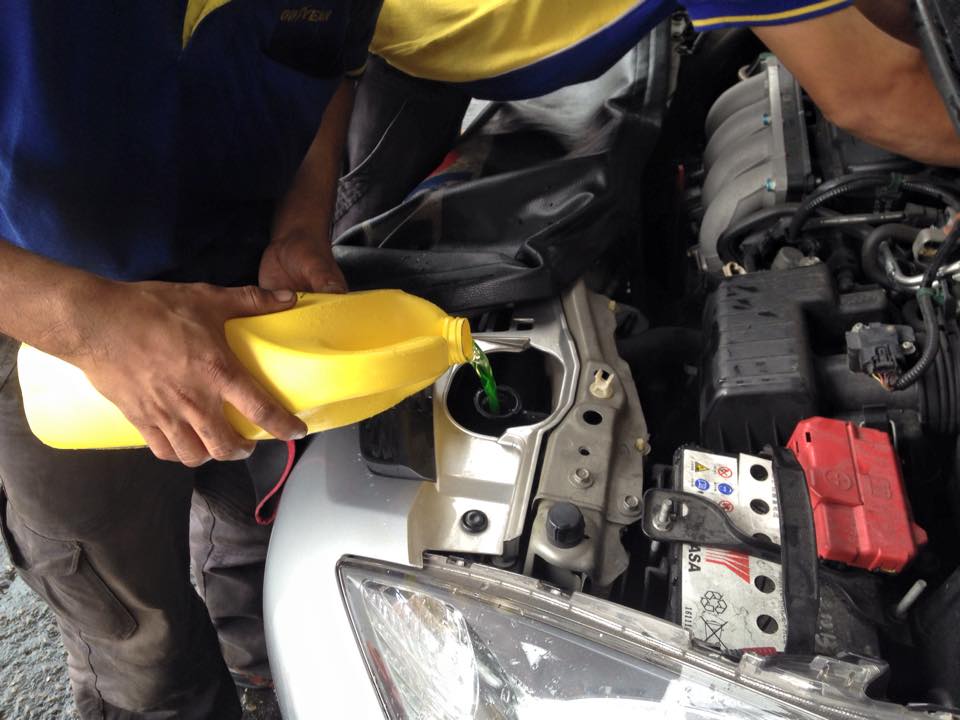“Can I Drive My Car Without Coolant/ Antifreeze? ” We've all been there.
Whether it was our first vehicle, or a used car we were driving and you learn about the importance of coolant and antifreeze.
Our vehicles force us to learn, because we are all affected when our car leaks these important fluids. Or our cars need these important fluids.
So, can you drive a car without coolant /antifreeze?
We'll not only answer that question for you, but offer you a thorough understanding of coolant/ antifreeze, as you maneuver life's winding roads!
Is There a Difference Between Antifreeze and Coolant?
When it comes to your car’s radiator winter time and freezing temperatures are no friends of your car!
Cold weather can have your car locking up or seizing-up.
This of course affects your engine. But is there a difference between antifreeze and coolant?
Well, chances are, you probably don’t care when you need your car to run, but it helps to understand coolant and antifreeze so that you are an informed driver and vehicle owner.
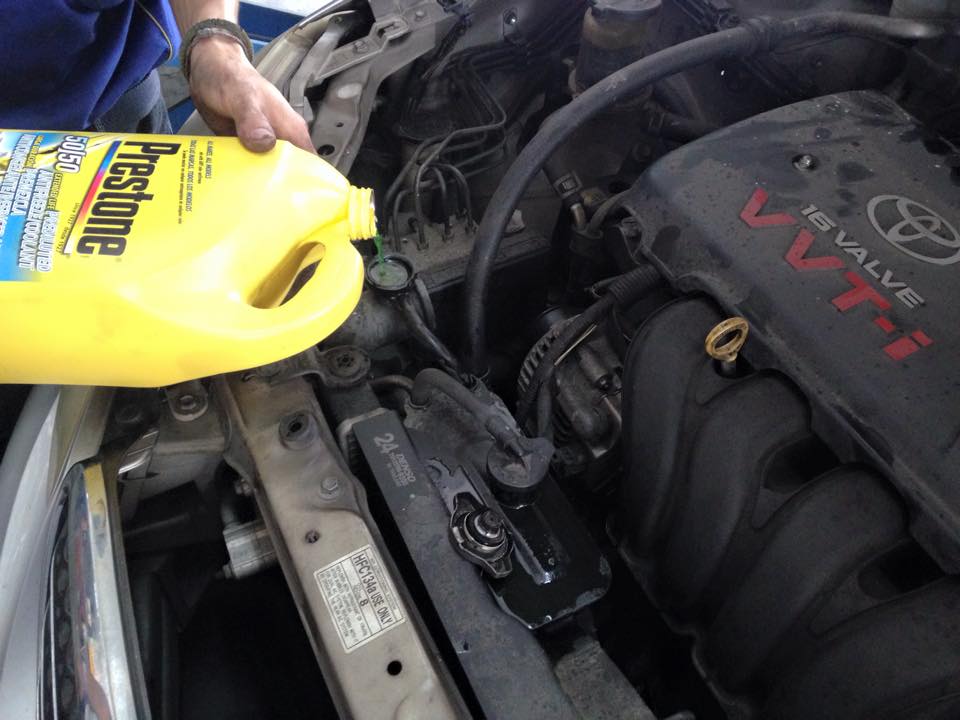
Antifreeze is one of the components of a coolant concoction.
Coolant is typically a 50-50 split between antifreeze as well as water.
Antifreeze has the main ingredient of ethylene glycol. This is used to lower the freezing point of the liquid that circulates around the engine of your car or vehicle.
As a result, antifreeze helps to prevent the fluid from freezing in the cold. It also prevents from the raising of the boiling point of the liquid, so evaporation doesn’t occur.
Your coolant in your car is also instrumental in keeping the components of the engine lubricated and smooth so that they work.
So, is Antifreeze that Greenish Color?
The two common colors of antifreeze may cause confusion. If you see orange colored liquid, that may be an “extended life” antifreeze.
The green one is a regular antifreeze.
Most pink antifreeze is a marine antifreeze.
The two common colors of antifreeze may cause confusion.
If you see orange colored liquid, that may be an “extended life” antifreeze.
The green one is a regular antifreeze. Most pink antifreeze is a marine antifreeze.
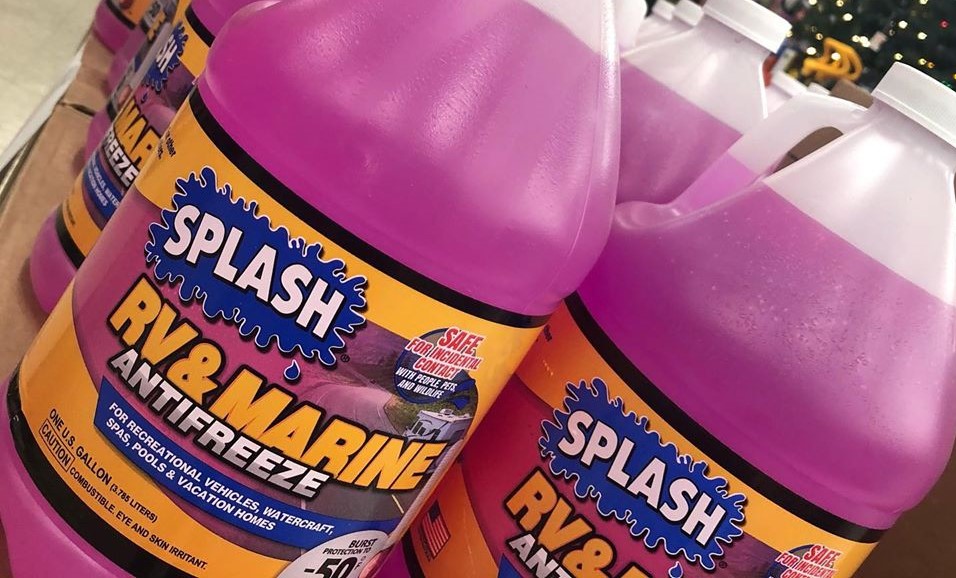
Your coolant mixtures can range in color.
Variations of an antifreeze/coolant mixture can be read, pink, blue, green, yellow or orange.
Confusion can certainly set it and this is why it’s important to visit a mechanic to ensure you are using the best and most precise antifreeze/coolant for your vehicle.
Just So That I'm Clear, Antifreeze is not the Same as Coolant, Correct?
Correct. Although there are two colors of antifreeze, neither is the same as coolant.
Your mechanic (or you) will or should mix them with water. Those two distinct colors should NEVER be mixed together.
The ultimate objective is to turn that antifreeze into coolant (with that water) and make sure that is effectively performs the tasks of preventing freezing as well as overheating in a vehicle.
What Happens If You Run A Car Without Coolant?
Well, there will never be a good outcome with your car if this is the car.
Your coolant offers circulation though the engine. It’s vital because it helps to maintain the correct working temperature of various parts of your vehicle.
So, if your car runs out of your coolant, you may experience the following (or you may be familiar with some of these instances already!)
- Warning lights on the dashboard. If your car is low on coolant, then you may have the experience of seeing your dashboard light up like a Christmas tree. Your temperature gauge will come on and that is not good. You may also get your “check engine” light come on too. Whenever you have the dashboard lights on, especially that temperature light, that is a sign that your coolant is low.
- The Automatic Engine Cut-Off. If you have a car that has the automatic engine cut-off component on it, then your car’s engine will cut off. This is a good thing. Because, this feature will prevent damage to the engine when the car starts. With this feature, you can’t drive your vehicle, until it cools down.
- Leakage. You know your car is out of coolant, when you see green and other colored liquids on the road or in your driveway. Instead of your coolant residing in your car, it's all over the pavement. So, if you suspect this may be happening, before you get into your car, do a check of the ground underneath your car.
- The smell. Yes, antifreeze has a smell and its smell is a “sweet” smell. So, if you smell a “sweet car-ish” smell, chances are your coolant is leaking and it's time to head to a mechanic.
Can I Drive My Car Without Coolant/ Antifreeze?
How Long Can You Run an Engine Without Coolant?
Even just a few moments of driving a car without coolant, can damage your engine.
This will depend on the amount of coolant you have in your car, if you can safely get from one point to another safely in your car.
But if your car has a leak and you really do not know how big the leak is, it's dangerous.
Therefore, we ask that you don't risk this at all.
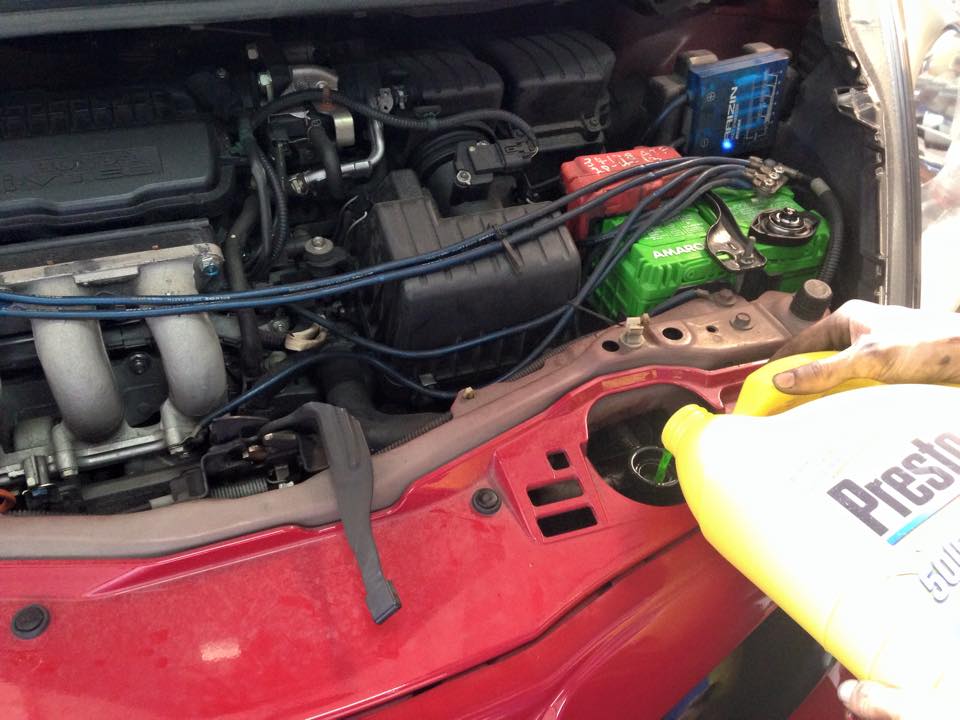
I'm in a Bind!
Is it OK to use Water Instead of Coolant?
Can I add some oil to my radiator?
PLEASE don't do that! Check out what happens if you pour engine oil into your radiator:
When you have your coolant mix with oil or you want to pour oil in your radiator, this spells trouble for you and your car.
Engine oil is for the lubrication of internal parts of the car. But coolant is designed to keep your car from overheating.
designed to lubricate the internal components of your car so that they operate smoothly rather than grinding each other up via heat and friction.
SO, if you decide to pour oil into your radiator or you have that oil mix with the coolant of your car, expect that your car will overheat. That oil is now pointless. It has nothing in it that will cool your car.
Can I Drive My Car Without Coolant/ Antifreeze?
Does Coolant Leak Over Time?
While there is a chance that coolant can evaporate over, time especially in older cars, you may try to get to the bottom of you having to keep pouring antifreeze/coolant in it often. Let's share with you the three causes of coolant leaks in cars.
External Leak
If you have an external leak that is causing coolant to seep from your car, then this is generally an easy fix as well as diagnosis. Additionally, an external leak causes the coolant to escape, causing your car to overheat, fast.
Chances are you or your mechanic can quickly and easily spot where the leak is coming from just a look at your hood. There may be a cracked, worn, spit or broken hose. Did you know that even leaks in the water pump, heater core or the engine freeze plugs can also allow coolant to leak from your car?
Your coolant reservoir also causing coolant to seep out.
Radiator Cap That Leaks
Maybe your car has a flimsy and weak or a leaky radiator cap. This can cause coolant to seep out too. The coolant can escape due to the overflow tube every time the coolant begins to heat. Since the radiator is a pressurized system, there may be a loss of pressure from the cap not fitting correctly.
You can even experience coolant seeping out, if the cap is the incorrect for your car’s radiator. Your mechanic will diagnose an ill-fitting radiator cap with a pressure test of the radiator cap.
Internal Leak in Your Car’s System
With an internal leak causing coolant to seep out, you typically won't see a large puddle of coolant under your car. But you will take notice, when your coolant level does not stay constant or always looks low and you find that you always have to fill it with coolant and antifreeze.
One of the reasons for the internal leak and the seeping coolant, could be because of a leaky head gasket. This allows for the coolant to escape.


Can I Drive My Car Without Coolant/ Antifreeze?
What if my Car Overheats! Help!
According to the Safety Serve website, there are some things you can do when your car overheats.
It’s never a fun situation to be in. And we know that nowadays, most drivers have an automobile assistance company they can call.
But if you find that you car has overheated, try to remember the following:
- As you wait or your automobile assistance company to come to your rescue, try to pull over on the shoulder of a road or highway. If you can't throw those hazard lights on fast and begin to slowly stop.
- As you begin to pull over to a safe location, turn off the car and give your car a few moments to cool before you decide to open the hood.
- Look at the temperature gauge before you decide to lift the hood and make sure that it has gone from hot to cool.
- Check your coolant level.
- If the radiator cap is hot to the touch, you may have to wait a few moments for it to cool before untwisting it. The with a towel or with your jacket, twist it off slowly. If you have coolant in your trunk and you see that your level is low, add coolant and then put your radiator cap back on.
- Check your lower as well as upper radiator hose. You’re looking to see of the heater hoses have a block on them, have burst or became disconnected.
- Then, carefully restart your engine and then examine the temperature gauge. If you see it rising, then pull over to a safe location and turn your car off.
These days we all have mobile phones and this is the time to have it charged. You need to call for assistance, or continue to wait for your auto club to come to your rescue.
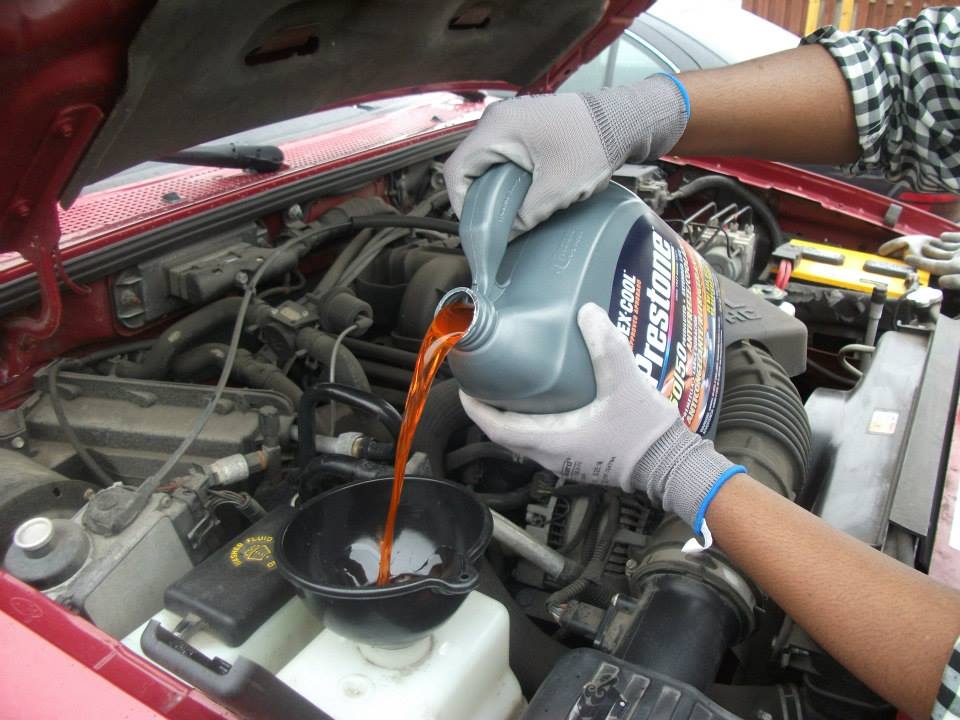
What's the best Coolant/ Antifreeze for my car?
How do I know I am buying the correct one?
Generally, there are three distinct coolant/antifreeze formulations:
- Hybrid Organic/ Acid Technology “HOAT”- mixture or inorganic and organic inhibitors- provides protection for up to 100,000 miles or 5 years- color can vary.
- Inorganic Additive Technology “IAT” – conventional “green antifreeze”- not to be used in newer cars, can protect up to 3 yrs or 45,000 miles.
- Organic Acid Technology “OAT” – most widely coolant formulation – protect up to 100,000 miles or 5 years- this will work in all cars.
You are able to buy these formulations in multiple colors as well as in the same color.
What's in full concentrated bottle of coolant?
- Ethylene Glycol- for the prevention of freezing up and boiling over. The mixture of Ethylene Glycol with water provides a 50/50 and protects down to temperatures of -34 degrees, Fahrenheit! It protects against boil over of up to 265 degrees, Fahrenheit!
- Inhibitors – these help to prevent corrosion of your car's parts. They can also be inorganic, organic or a combination of both.
- 1% to 3.5% of water
- 10-10,000 PPM (parts per million of Anti-foaming agents.
When all of these chemicals are blended, you can see an almost clear liquid. Now, for the colors you see in antifreeze, your antifreeze has trace dyes in them.
So, when you choose antifreeze for your car, you need to concentrate on the formulation of the antifreeze, not the COLOR it is.

